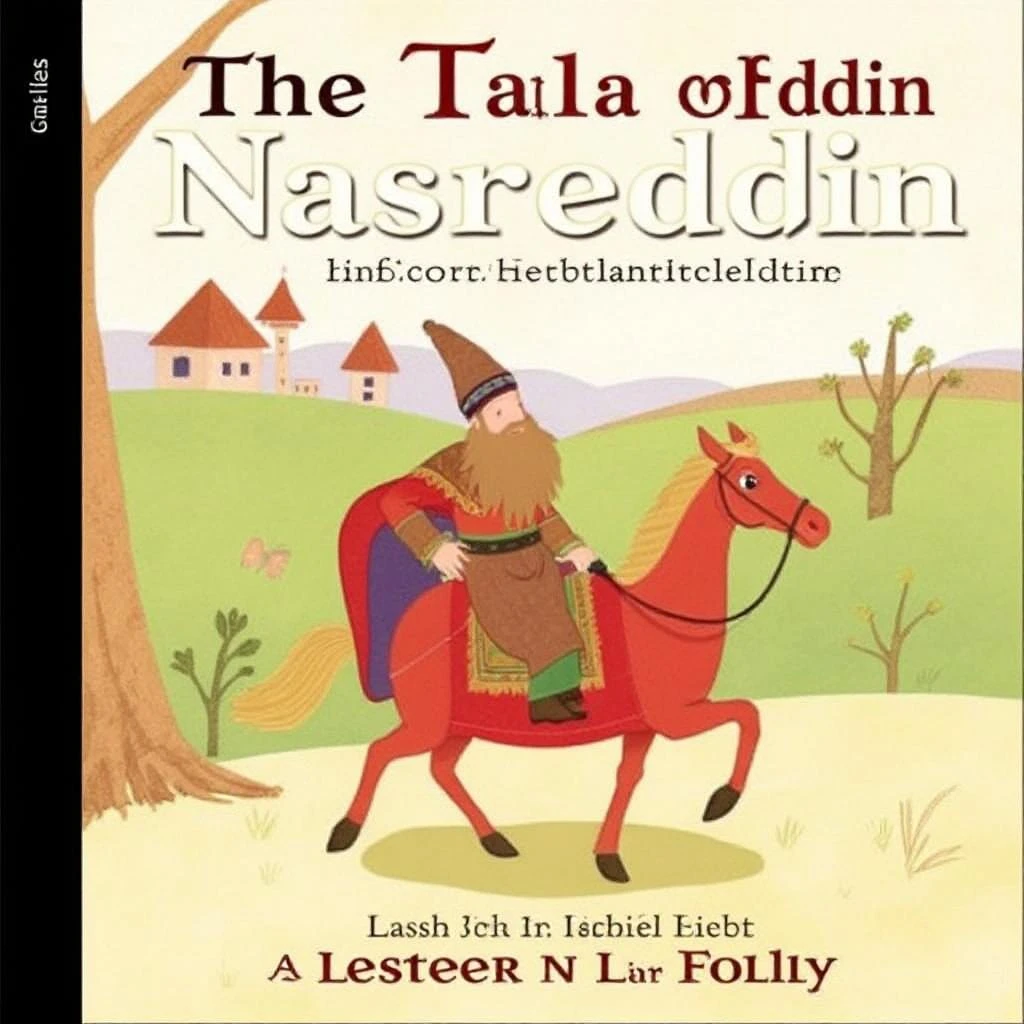The Tale of Nasreddin: A Lesson in Faith and Folly

Once upon a time in Syria, in the bustling heart of Damascus, there lived a poor yet devoted Muslim named Nasreddin. His days were often consumed by prayer and devotion, yet he faced a constant challenge at home. His wife, a stern and unfriendly woman, frequently questioned the efficacy of his piety. “What good are your prayers,” she would lament, “when our fortunes dwindle day by day? If your faith is true, then ask your God to deliver us 100 gold coins!”
One day, as Nasreddin knelt in prayer, he raised his eyes heavenward and beseeched, “O my God, Thou knowest how my heart swells with gratitude for all that Thou hast given. Yet, for the sake of peace in my home, I implore Thee: grant me 100 gold coins.”
In his neighbourhood resided a wealthy young man, known for his sense of humour. Overhearing Nasreddin’s earnest plea, he decided to play a jest. With a mischievous glint in his eye, he entered Nasreddin’s humble abode, carrying a bag filled with 99 gold coins.
As Nasreddin prayed, the young man placed the bag before him, ruffled his hair, and exclaimed, “Behold! God has sent you 100 gold coins from the heavens!”
Nasreddin, upon seeing the bag, joyfully called out, “Come, my dear wife! Witness this divine provision!” Initially sceptical, his wife dismissed him, saying, “You’ve spun another wild tale.” However, as she beheld the bag, her disbelief transformed into delight, and she began to dance with unrestrained joy.
Just then, a neighbour named Abraham knocked at the door. Upon entering, he remarked, “Nasreddin, you seem elated! How do you know there are 100 gold coins?”
“God knows how to count,” Nasreddin replied with a serene smile.
Abraham, undeterred, retorted, “A single coin is missing!”
With equanimity, Nasreddin replied, “The one that is missing will arrive in due time.”
As Abraham explained his prank, Nasreddin responded resolutely, “The coins are mine.”
Inevitably, a quarrel ensued, growing heated until Abraham bellowed, “We must take this matter to the judge!”
“Very well,” Nasreddin said, “but as you can see, one of my legs is injured, and the judge’s house is quite far.”
Eager to reclaim his gold, he proposed, “Take my horse; I shall manage on foot.” But before mounting the horse, he added, “My shirt is old, and I would be embarrassed to appear before the judge in such attire.”
Abraham, perhaps feeling guilty, removed his own shirt and offered it to Nasreddin.
“Here’s my shirt. If there are no other issues, let us go before the judge.”
Upon reaching the judge’s chamber, Nasreddin sat quietly as Abraham recounted the story, his voice tinged with anger.
Nasreddin leaned in and whispered, “This man is mad; he believes that everything belongs to him.” He then suggested, “Ask him whose horse I arrived on.”
Abraham, with certainty, declared, “It belongs to me.”
Nasreddin whispered again, “Now inquire who this shirt belongs to.” Abraham, still bold, responded, “Of course, it belongs to me.”
Upon hearing this, the judge turned to Abraham and said, “You are indeed mad, and I recommend you seek a healer. For your folly, I decree that you must pay Nasreddin one gold coin.”
With no choice left, Abraham begrudgingly handed over a gold coin to Nasreddin.
The very next day, Nasreddin returned, holding the bag containing the 100 gold coins, and said, “Consider this a cautionary tale: do not dare to interpose your own will between God and His servant!”
